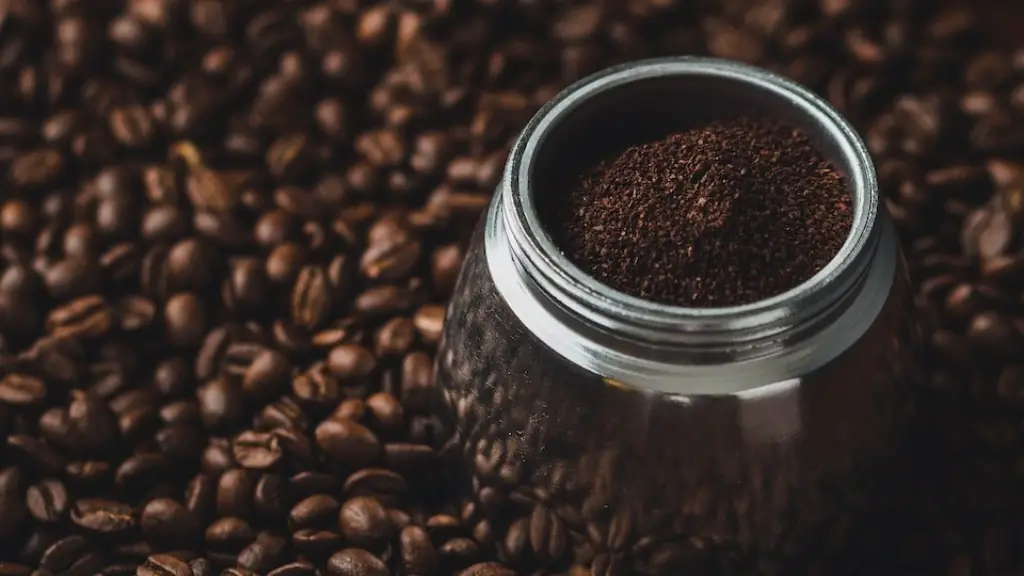Iced coffee is a refreshing drink that’s popular all over the world. But can you drink iced coffee the next day? Depending on the type of iced coffee you’re drinking, the answer can be yes – or maybe not! Read on to find out more about iced coffee and the different ways it can be made.
When it comes to iced coffee, there are a few different types. The most popular is cold brew coffee, which is made by steeping coffee in cold water for 12-24 hours. This type of iced coffee is often the most flavorful, and it can last up to two weeks when refrigerated.
Another type of iced coffee is cold drip coffee, which is made by dripping cold water over freshly ground coffee beans. This method produces a smooth cold coffee with a strong flavor. It can be enjoyed within hours, but it won’t last beyond 24 hours.
The third type of iced coffee is brewed coffee. This is the most common way of making iced coffee, and it’s made by brewing hot coffee and pouring it over ice cubes. It’s refreshing, but the flavor is usually not as rich as cold-brewed coffee. It will last up to 24 hours when refrigerated.
So, can you drink iced coffee the next day? It depends on the type of iced coffee you’re drinking. Cold brew coffee can last up to two weeks when refrigerated, while cold drip coffee will only last up to 24 hours. Brewed coffee will last up to 24 hours when kept in the refrigerator.
Whether you can drink iced coffee the next day or not, it’s important to practice good food safety practices. This means cleaning and sanitizing all surfaces that come into contact with iced coffee, as well as refrigerating iced coffee promptly.
Factors Affecting the Taste of Iced Coffee
When it comes to iced coffee, there are a few factors that can affect the taste. The quality of the coffee beans is one factor, as well as the type of brewing method used. The amount of time the coffee is brewed or steeping is also important, as this can affect the intensity of the flavor.
The temperature of the water and coffee is also an important factor. If the coffee is brewed with too hot of water, it can make the coffee too strong, while using cold water can make it too weak. The ratio of water to coffee is also important, as this can affect the flavor and strength of the coffee.
Finally, the type of ice used can also affect the taste and texture of the iced coffee. Opt for large ice cubes that will melt slowly, as this will ensure that the coffee doesn’t become watered down.
Health Benefits of Iced Coffee
As well as being a refreshing drink, iced coffee can also offer some health benefits. Coffee is packed with antioxidants that can help to protect the body from free radicals and cell damage, and it’s also a source of beneficial minerals and vitamins like magnesium, potassium and vitamin B3.
Cold-brewed coffee is particularly beneficial, as the cold-brewing process helps to retain more of the antioxidants and minerals in the coffee than when brewed with hot water. Cold-brewed coffee can also be more pleasant because it has less of the acidic, bitter flavor often associated with hot coffee.
Coffee is also a source of caffeine, which can help to boost energy levels and concentration. It can also help to speed up the metabolism and improve exercise performance.
However, it’s important to remember that too much caffeine can have negative effects on the body, such as headaches, anxiety, and insomnia. It’s best to limit caffeine intake to no more than 400mg per day, which is the equivalent of two-to-four cups of coffee.
Choosing Good Quality Iced Coffee
When choosing iced coffee, it’s important to look for good quality ingredients. Freshly roasted coffee beans are the best choice, as pre-ground coffee can quickly go stale. It’s also important to choose the right brewing method for your preferred taste and texture.
When it comes to cold-brewed iced coffee, it’s important to use a coarse grind of coffee and cold water. For brewed iced coffee, a medium grind is best.
It’s also important to use filtered water to make iced coffee, as this will help to produce a cleaner, crisper taste.
Finally, for the best iced coffee experience, be sure to use the freshest coffee possible. Coffee tastes best when its freshly brewed or steeped, so it’s best to drink it within a few days of making it.
Alternatives to Iced Coffee
If you’re not a fan of iced coffee, there are plenty of other cold drinks that can offer a similar experience. Iced tea is a refreshing and healthy alternative to iced coffee, and there are many different kinds to choose from, including herbal teas, green tea, and black tea.
Fruit juices and smoothies can also be a great way to get your daily dose of vitamins, minerals, and antioxidants. If you want to give your smoothie a caffeine boost, you can add green tea or matcha powder.
For those looking for a dairy-free alternative, almond and soy milk-based iced coffees can also be a delicious and nutritious alternative to traditional iced coffee. Plus, many coffee shops now offer a variety of dairy-free syrups and toppings, making it easy to make healthier iced coffee drinks.
Finally, if you’re looking for a caffeine-free alternative to iced coffee, cold-brewed herbal tea can be a great option. Many herbal teas are high in antioxidants and other beneficial compounds, making them a healthy choice.
Tips for Making Iced Coffee
When it comes to making iced coffee, there are a few tips that can help ensure that your cold brew has the best flavor and texture. First, start with freshly roasted coffee beans, as pre-ground coffee can quickly go stale. It’s also important to use filtered water and the correct grind for your preferred brewing method.
For cold-brewed iced coffee, a coarse grind is best, while for brewed iced coffee, a medium grind is best.
For extra flavor, try adding spices and herbs to the coffee grounds before brewing. Cinnamon, nutmeg, and cardamom are all delicious additions to iced coffee.
When brewing, be sure to use the right ratio of coffee to water. A good rule of thumb is to use one part coffee to four parts water by weight.
Finally, it’s important to experiment with different brewing methods and find the one that works best for you. Everyone is different, so don’t be afraid to play around with different recipes and techniques until you find the perfect cold brew for you.





